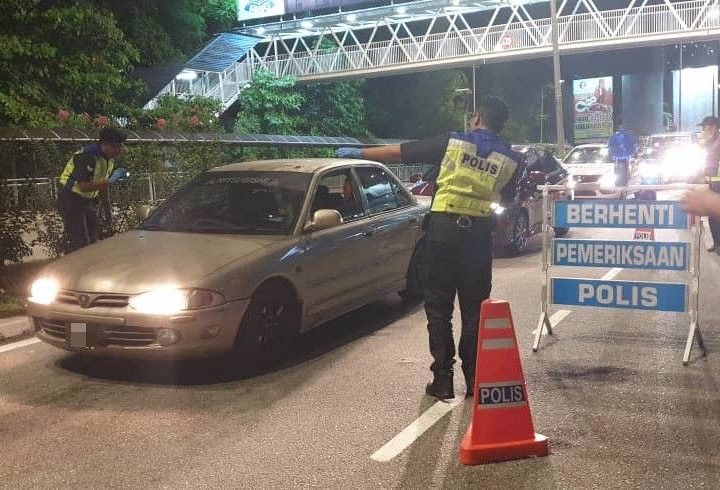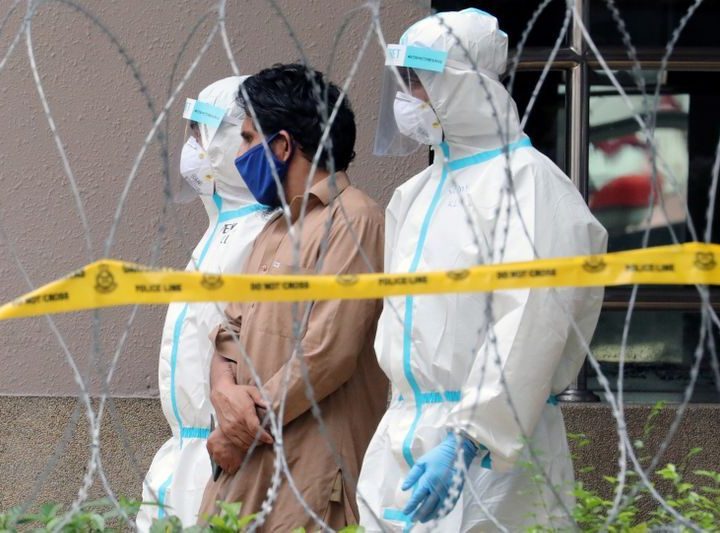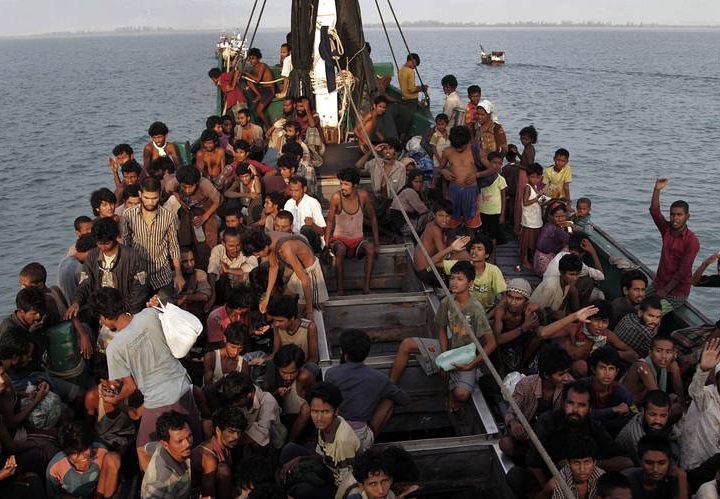Detained Rohingya Are Being Mistreated in Malaysia & We Need To Talk About It
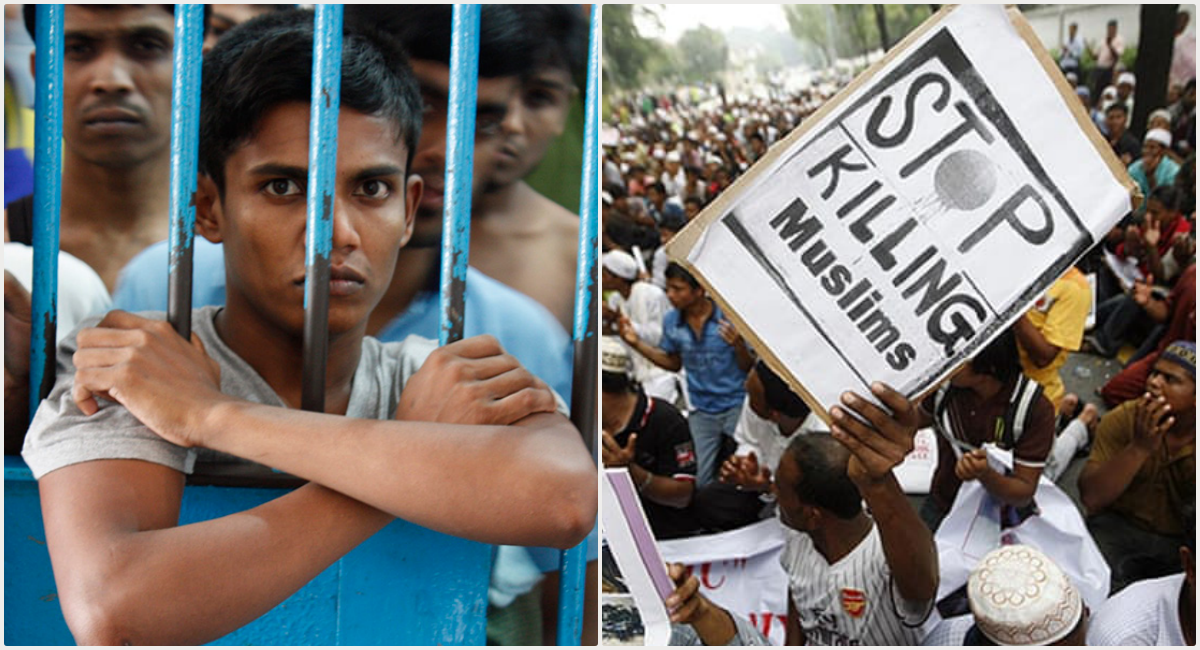 Thirsty for JUICE content? Quench your cravings on our Instagram, TikTok and WhatsApp
Thirsty for JUICE content? Quench your cravings on our Instagram, TikTok and WhatsApp
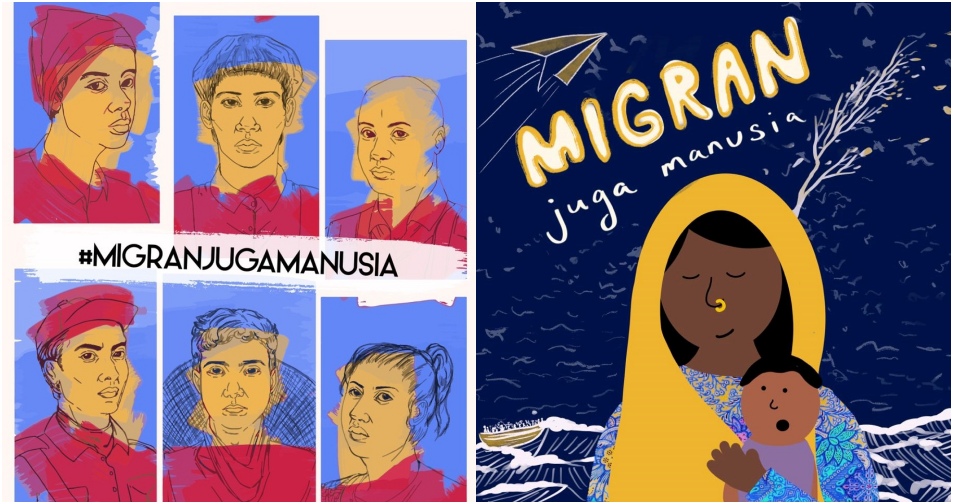
There has been a significant divide in the way Malaysians approach the #MigranJugaManusia movement that was instigated due to the migration of Rohingya to Malaysia.
The recent spike in Covid-19 cases was recently reported to be at 277 cases and 271 of those new cases are of non-Malaysian citizens. 270 of the cases were located at Bukit Jalil Immigration Detention Depot, where Rohingya are detained.
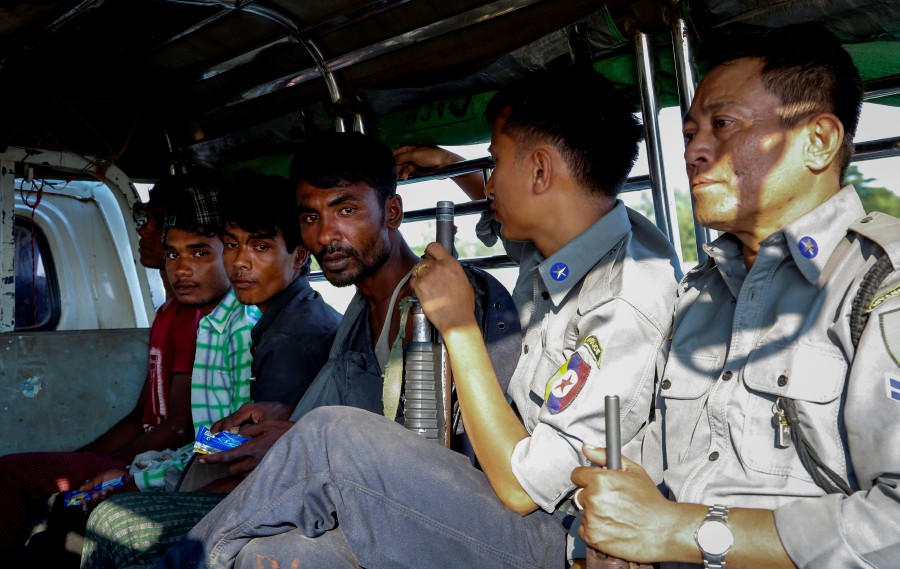
Many Malaysians have expressed vitriol towards the migrants upon hearing the news due to the fact that they believe Rohingya are carriers of the disease. However, the situation escalated due to police raids, arrests and detainment at immigration centres that are known to be packed and unhygienic. This was the main catalyst towards the spread of Covid-19 amongst the migrants.
When NGOs and netizens raised concern towards the treatment of Rohingya in Malaysia, many were quick to defend the government’s actions by saying that the migrants are being treated well and are contained at a safe and clean facility. There is evidence to prove otherwise.
Are migrants really being mistreated in Malaysia?
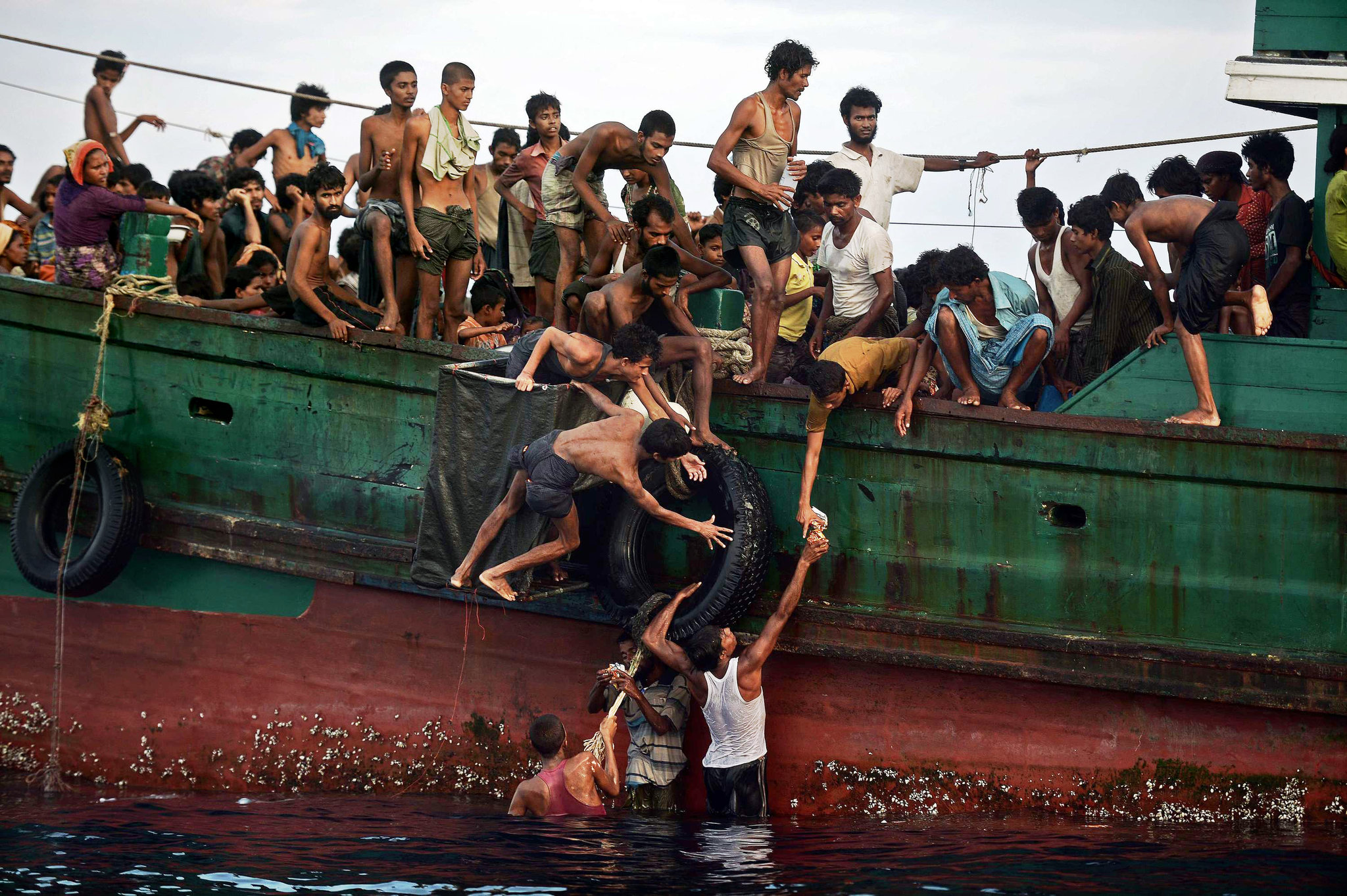
Usually uprooted from their lives back home, Rohingyans fled to Malaysia in seek of asylum. This is because their country has become war-torn and they fear for their lives. PKR President Anwar Ibrahim explained their plights in a video on Facebook when he said,
“They were denied citizenship in their own country. That is why their villages were burned and they were chased out from their homeland. If we send the refugees back to Myanmar, they will be suppressed and might even be shot to death.”
Anwar clarified that he wasn’t suggesting giving Malaysian citizenship to the Rohingya refugees nor had they asked for it. He said that they had only ever asked to be granted Myanmar citizenship.
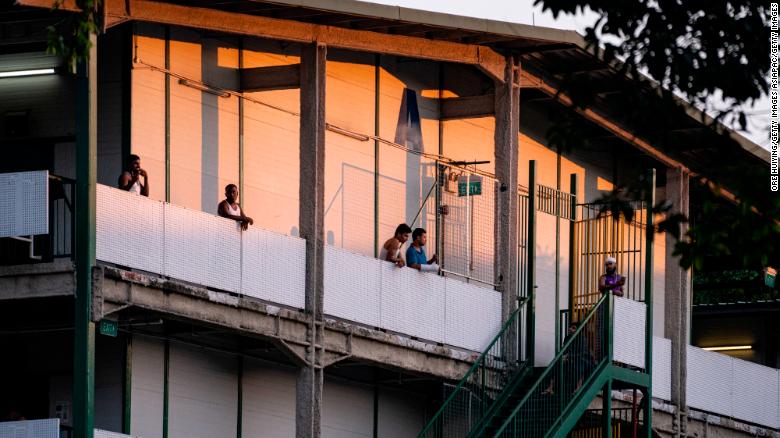
However, once here, the migrants usually have nothing to their name and forced to live in flats and share showers as well as beds and food with strangers. To them, social distancing is a privilege.
The lack of running water, proper sanitisation and space within their crowded houses breed diseases such as Covid-19. Even when NGOs donate food, such as vegetables, or meat to their community, the fact that most of them do not own refrigerators to store them perpetuates their lack of nutrition and deteriorates their overall health and well-being.
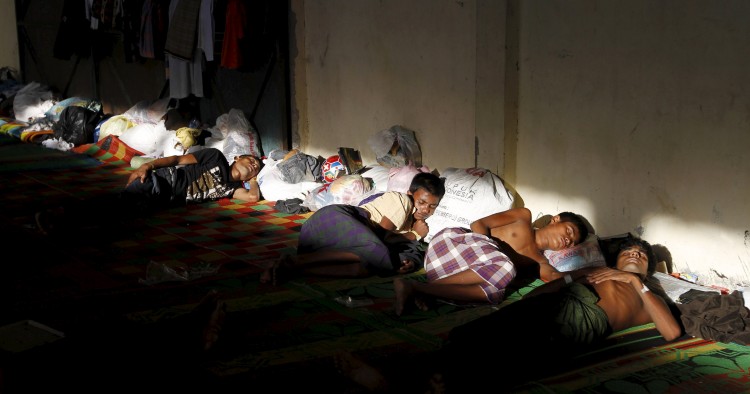
In addition to that, according to Adrian Pereira, the Executive Director of North South Initiative (NSI),
“[Migrants] are subjected to passport confiscation, low pay in violation of minimum wage laws, poor living conditions, punishment by fines, high recruitment fees and debts to recruitment agencies and employers, forced labour, human trafficking and salary deductions.”
The mistreatment of Rohingya, who are are majority Muslim, was further exacerbated during Ramadhan, when they were forced to sit on hot concrete under the scorching sun without any food or water due to police raids. The crowd included young children and even babies.
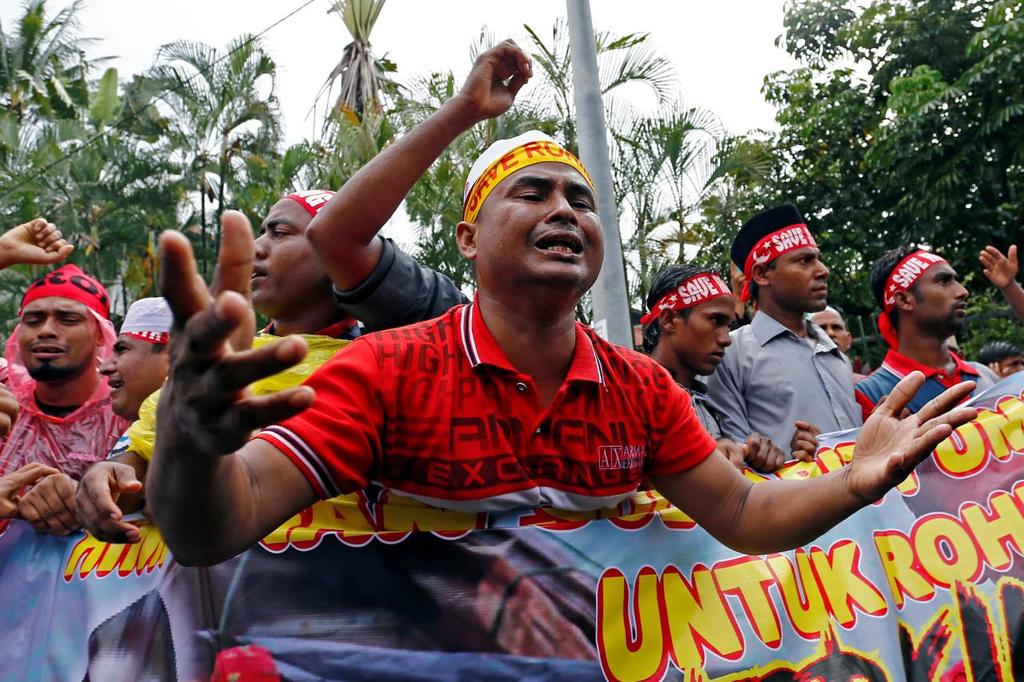
Prior to this happening, the migrants were already being harassed when anti-refugee petitions started to gain momentum. Some of these organisations even circulated pictures and information of activists with inflammatory accusations, thus making them clear targets to the public.
By amplifying anti-migrant sentiments, fear was injected into the Malaysian community, fuelling belief that Rohingya are here to steal our resources and commit crime. At a time as sensitive as this, with the pandemic ongoing and working Malaysians losing their jobs and sources of income, many began to feed into that mindset.
Nay San Lwin, the co-founder of the Free Rohingya Coalition group, shared that the backlash they faced from Malaysians made them feel like they were less than human.
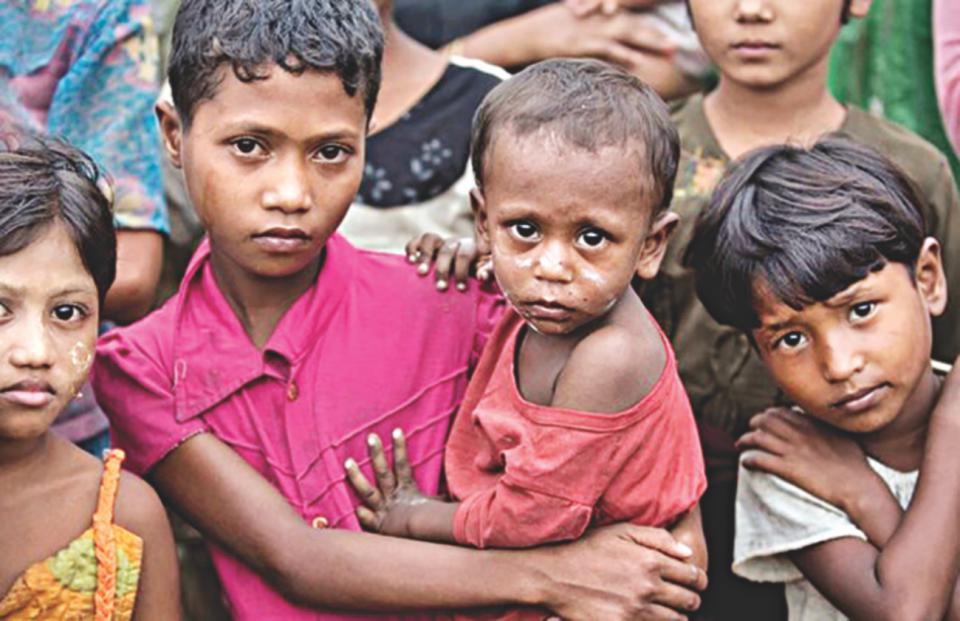
According to Al-Jazeera, children as young as one year old have been detained during raids despite Malaysia’s pledge not to arrest undocumented migrants. These raids usually show no concern towards the migrants’ safety. The video below shows the migrants in an exceptionally long single-file line without any social distancing and some were not even wearing face masks while the officers had full gear on.
Breaking: Following the appalling statement released by MOHA #Malaysia on #Rohingya #refugees, massive crackdowns of migrants are reported by communities this afternoon. https://t.co/SN1iU22gCF pic.twitter.com/eY6rFB2Ha7
— APRRN (@APRRN_) May 1, 2020
“This is not at all humane. Even innocent children and babies were being dragged onto the trucks like cattle,” said Rachel Tan, programme officer at the Asia Pacific Refugee Rights Network.
At one point, these raids were happening so frequently that migrants in the area feared the sound of sirens every day. The raids were usually accompanied by patrolling and announcements that were always done in Malay, a language the Rohingya do not speak. Due to this, refugees are often held at police stations and fined because they could not explain to officers where they were going when questioned.
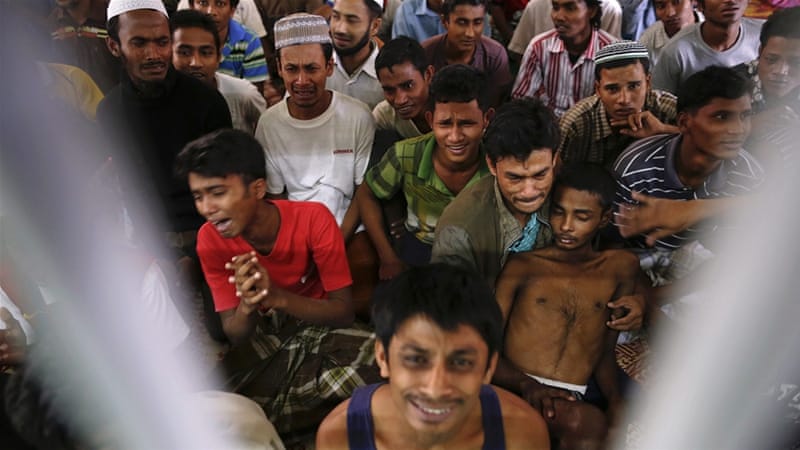
While in detainment, horrific recounts of experiences begun to surface as NGOs witness the mistreatment there.
Mouyura Begum, an 18-year-old Rohingya refugee detained for over a year at Belantik, told the Guardian,
“They gave us only one small cup of water with our meals, otherwise we had to drink toilet water. Only when someone was about to die would the guards come. Otherwise, if we complained, or if we asked to go to the hospital, they beat us.”
Despite the serious regulations for social distancing, migrants had to sleep on the floor, in confined spaces with “their knees to their chest.”
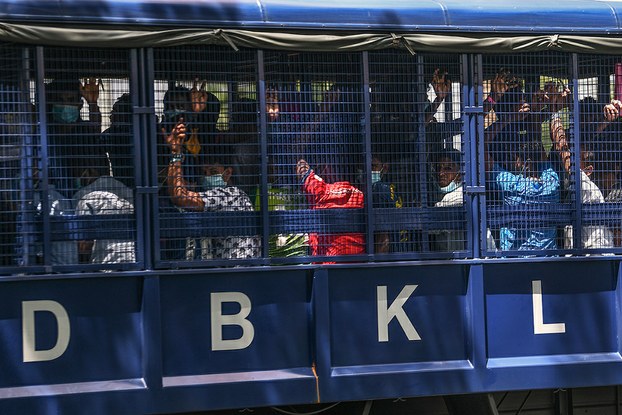
The Malaysian Health Coalition, Malaysian Trades Union Congress and Beyond Borders Malaysia, alongside nine other NGOs mentioned in a statement that, “Immigration detention centres are Crowded and Confined areas where Close conversations are unavoidable – the three Cs that the Health Ministry has advised against. These conditions must be improved to allow for necessary physical distancing measures which will help prevent further COVID-19 outbreaks.”
An inmate was also beaten to death yet the authorities told the others that he died of “sickness.”
To further paint the picture of turmoil faced by the migrants in detainment, Refuge for the Refugees (RFTR) founder Heidy Quah, shared on her Facebook page several posts regarding refugees contacting her and telling her their experiences. Below are those harrowing posts:
What can I do to help?
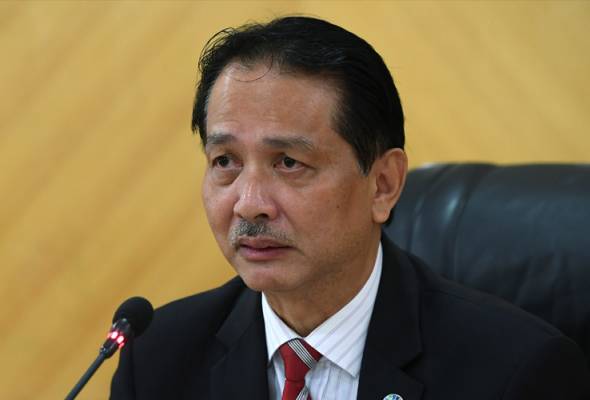
Director-General of Health, Datuk Dr Noor Hisham Abdullah has said that negative sentiments against detainees must not be amplified and must not be a catalyst for discrimination in saving lives. He continued, saying,
“The virus knows no boundaries and does not favour any ethnicity and social status. Our whole government and whole community approach should work together to fight the virus.”
Human Rights Watch has been calling for the Malaysian government to “remove the barriers that prevent non-citizens from getting healthcare and ensure that everyone, regardless of their nationality or legal status in Malaysia, can obtain testing and treatment for COVID-19 on a nondiscriminatory basis.”
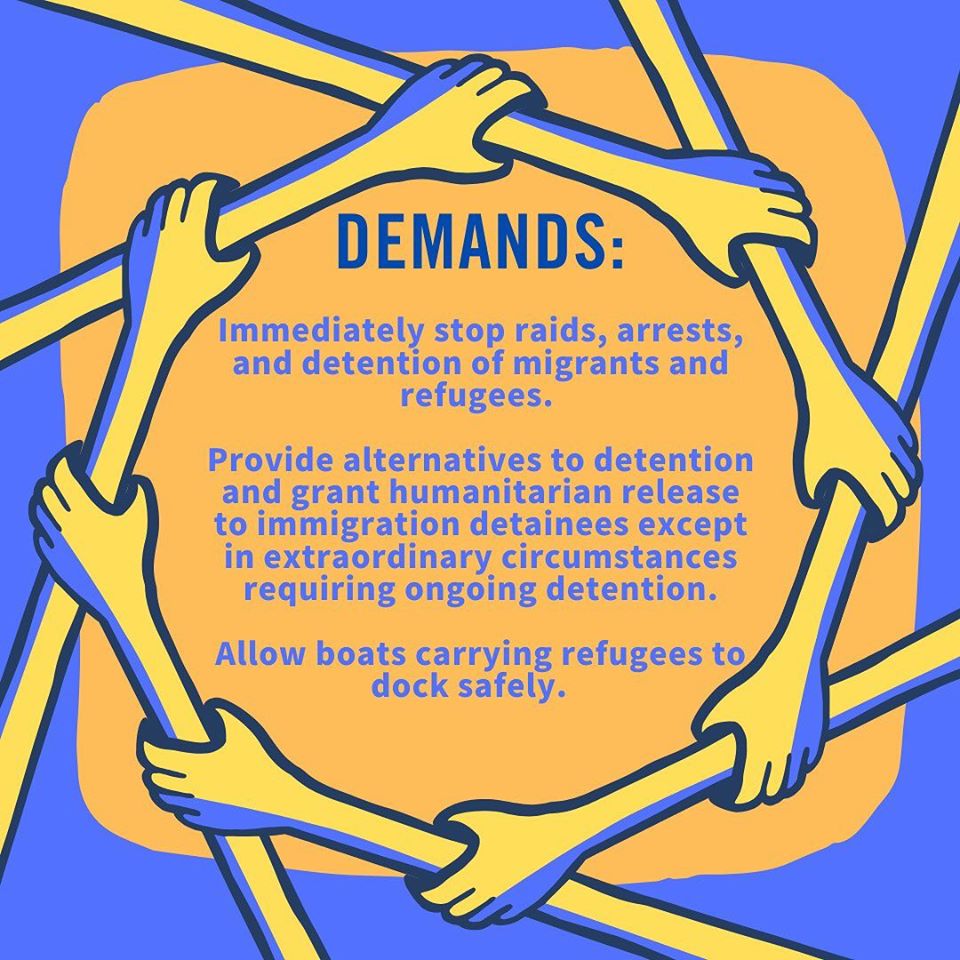
Before that can be done, Malaysians can contribute through several methods. JUICE had previously mentioned in an article of protests for the #MigranJugaManusia movement which brought to light several important facts and demands for the betterment of the refugees, but protesting is not all we can do.
Several Community Service Organisations (CSOs) and NGOs in Malaysia are working arduously to provide groceries to migrants and refugee community organisations. These organisations are available to the migrants and they only needed to call them for assistance. They rely on donations and support from the community. Here is a list of organisations you should check out if you want to help:
- Beyond Borders Malaysia
- Refuge For The Refugees
- Dapur Jalanan
- Geutanyoe Foundation
- Our Journey MY
- Tenaganita
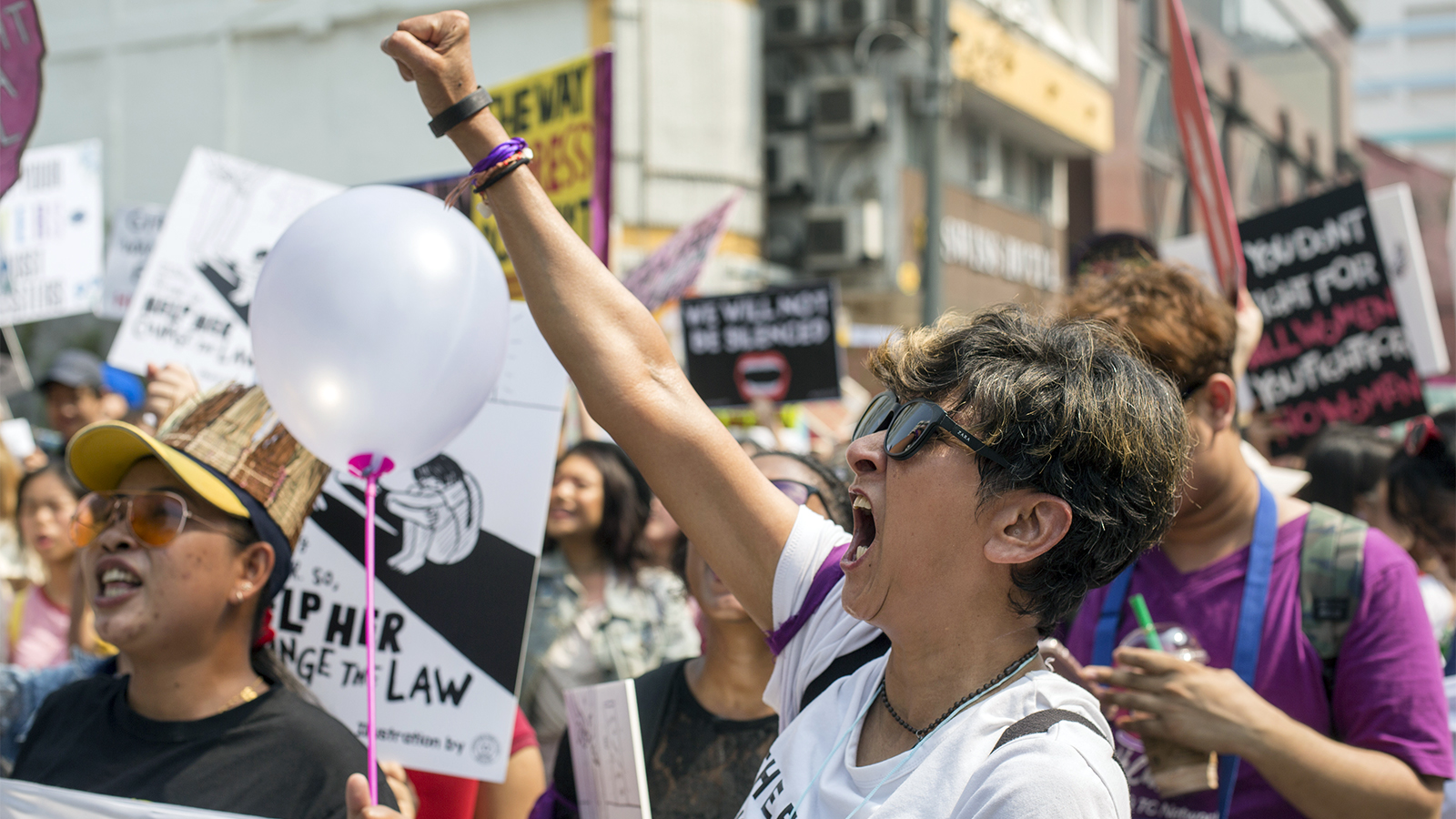
Other than that, being vocal about this issue has also led to more attention being shone upon the plights of Rohingya refugees. When more people passionately protest against the discrimination and criminalisation of the migrants, action is more likely to be implemented within the government. Using the hashtag #MigranJugaManusia shows solidarity and by sharing information regarding their detainment, Malaysians will cease to remain ignorant towards those who are impoverished and in need of help.
“I would like local people to understand that we fled to Malaysia not because we don’t want to stay in our country, but to save our lives. When our country becomes peaceful, we will go back,” said La Seng of the Kachin Refugee Committee.
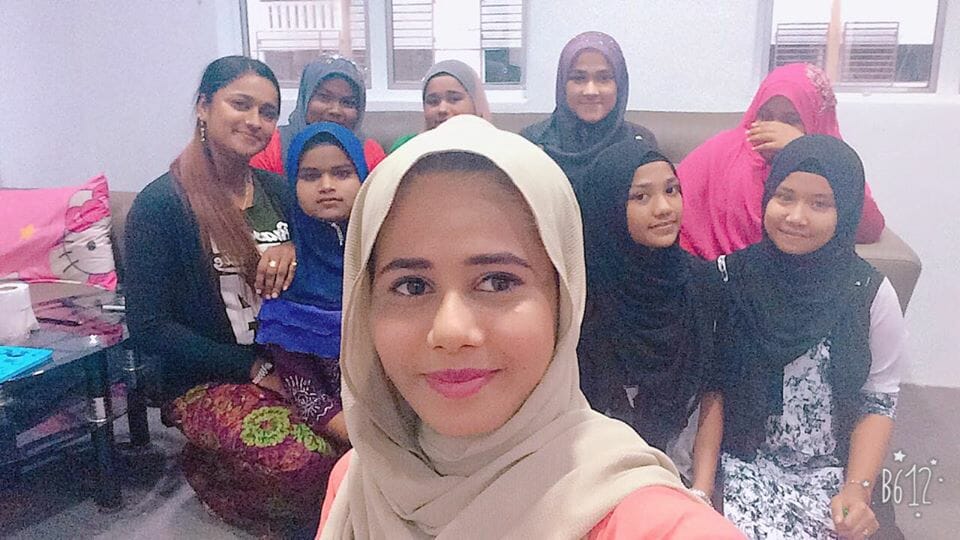
Sharifah Shakirah, a Rohingya refugee, shared with online publication In Real Life,
“I’m grateful for the little things we have here. Despite everything I went through, I still consider myself a half Malaysian because I’ve lived here all my life and it is still my home. I just want Malaysians to know that we want to help, we want to contribute to your country, and more than anything, we want to return home if it’s ever safe again. Finally, to my fellow refugees, we have faced worse things than what’s going on now. Never lose hope, we will continue to fight and stay strong.”
It’s time for Malaysians to be more empathetic.
For more features, choose JUICE.

 Get Audio+
Get Audio+ Hot FM
Hot FM Kool 101
Kool 101 Eight FM
Eight FM Fly FM
Fly FM Molek FM
Molek FM